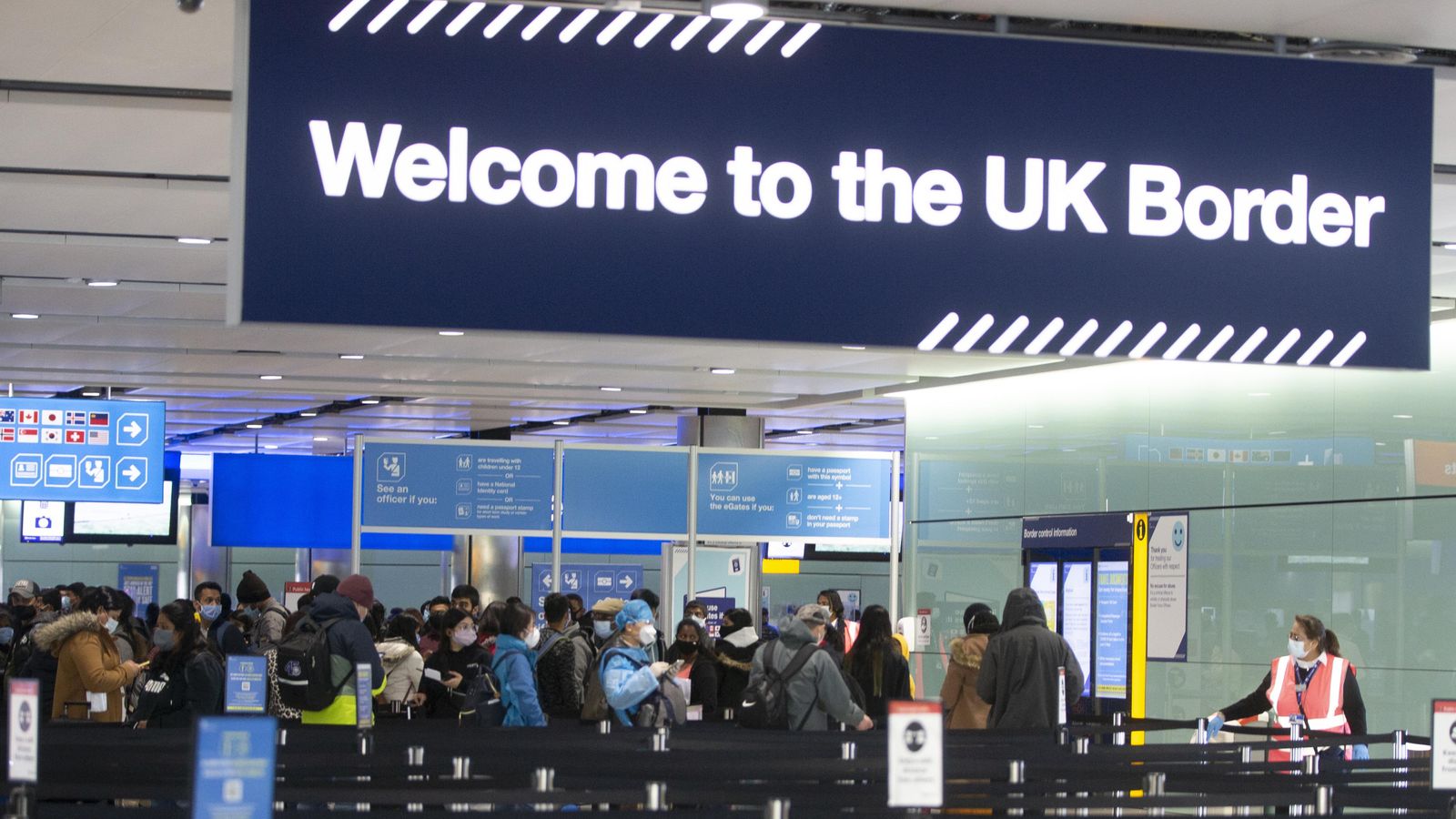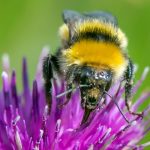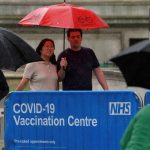Workers at Heathrow have raised fears about overcrowding at the airport days after a traffic light system to restart foreign holidays was launched, according to a trade union.
The GMB said it had received reports of travellers from “red list” countries mixing those from green and amber countries – which are deemed less risky.
It said members providing security and hosting services at Heathrow reported travellers from different lists being “stuck in a bottleneck” before immigration.
Please use Chrome browser for a more accessible video player
Heathrow said it had numerous measures in place to keep passengers and staff safe and that risk of transmission at the airport was low.
But according to the GMB, workers report that passengers from different lists are mixing without screens to separate them and are forced to drink from the same communal water fountain.
The union also reported a lack of facilities for security workers escorting “red list” arrivals and longer queues for coaches taking them to quarantine hotels – as local accommodation fills up and they have to be transported further afield.
GMB national officer Nadine Houghton said: “I have been inundated by messages from concerned GMB members providing a vital service at Heathrow – workers who desperately want to get the UK flying again but are in fear for theirs and their families’ safety.
“GMB wants to know how the government will mitigate further problems when more countries are added to colour-coded lists.
“As our quarantine hotels fill up, what measures do ministers have in place if more countries turn red?
Please use Chrome browser for a more accessible video player
“How will they cope with more bottlenecks at Heathrow and potentially elsewhere?”
A Heathrow spokesman said: “There are numerous measures to keep passengers and colleagues safe.”
These included requirements for negative tests pre-departure for all international arrivals, enhanced cleaning regimes and ventilation in immigration halls, dedicated COVID marshals to enforce social distancing and mandatory use of face coverings throughout the airport.
“As a result, the risk of transmission at the airport is low,” the spokesman added.
He added that passengers from the “red list” were “directed into a dedicated channel and separated from other passengers”.
“After crossing the border, government contractors then escort red list passengers to a segregated area of our baggage hall to collect their luggage before taking them to dedicated hotel quarantine transportation,” the spokesman said.
A government spokesperson said: “Protecting public health is our priority and as we reopen international travel safely we will maintain 100% health checks at the border to protect the public and our vaccine rollout.
“Arrangements for the management of returning passengers are the responsibility of the relevant airport, which we expect to be done in a COVID-secure way.”
The concerns over Heathrow come days after the introduction of the new system under which travellers returning from the “red” and “amber” countries have to quarantine – in hotels for those from the highest risk “red” destinations.
Those from lower risk “green” countries do not have to quarantine but like all arrivals do have to pay for COVID tests.
Last month Heathrow boss John Holland-Kaye said he was “deeply concerned” about the ability of the Border Force to be able to cope with increased volume of traffic as travel rules were eased on 17 May.
Home secretary Priti Patel told the Daily Mail on Thursday that those returning from “amber” countries such as France and Spain should expect a “knock on the door” to check they are obeying quarantine rules.
Meanwhile transport secretary Grant Shapps said people should “apply common sense” when deciding whether to travel to amber destinations, amid confusion.
There is no ban on visiting them though the government advises only doing so in exception circumstances and not for holidays.
But Ryanair boss Michael O’Leary has said that people are “booking in their droves” for getaways this summer that are not on the green list.






















